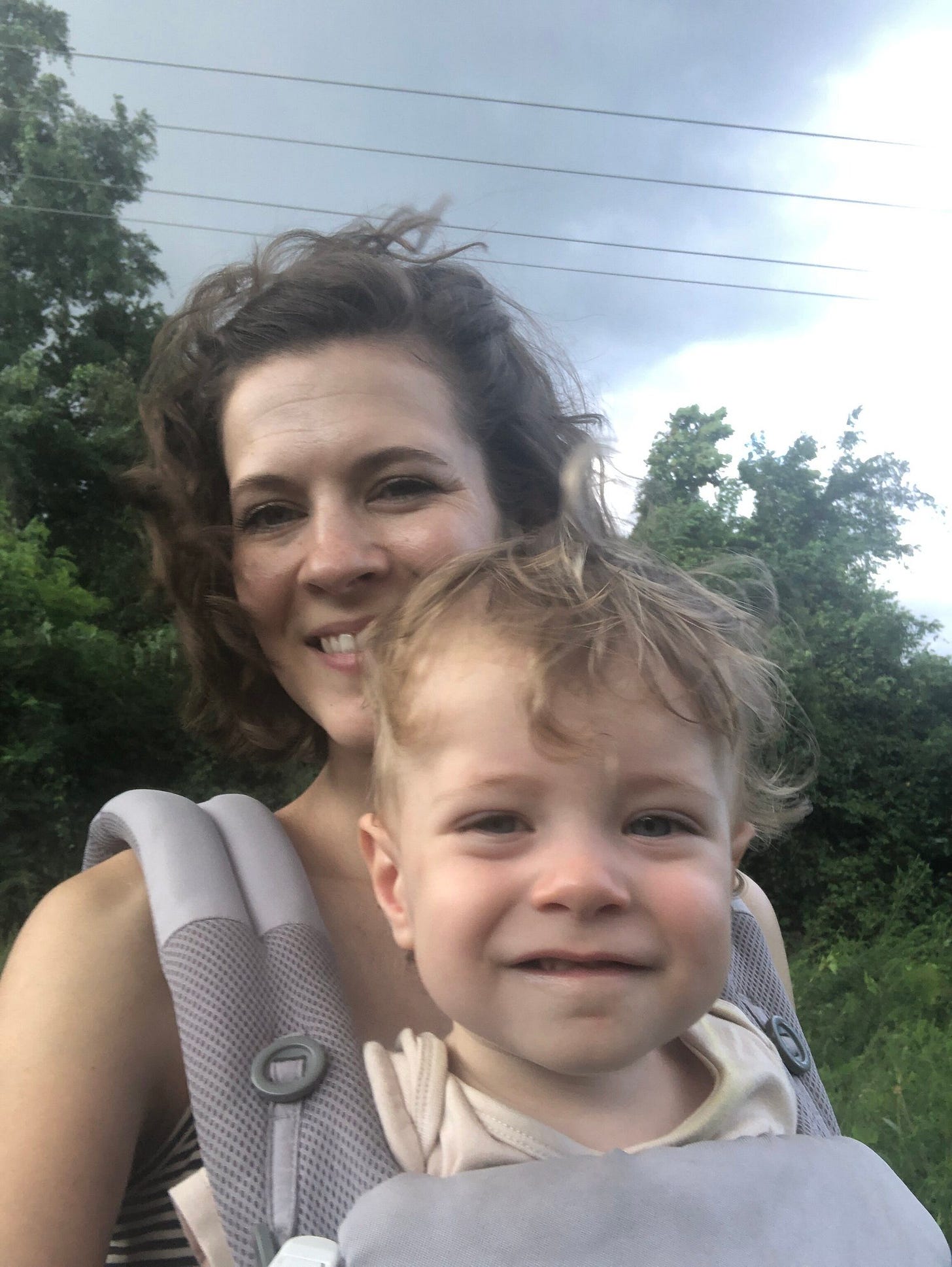Will my brain be bad forever?
I can't even think of a good subtitle
My brain feels like a summer peach left too long on the counter.
It has gone soft in several places. It was once sweet, promising, but now it is sad and sticky. I’m not sure if I can get it back.
There was that disturbing study in 2016, published in Nature Neuroscience, which found:
The women who had recently given birth had such pronounced biological changes in their brains that a computer algorithm could separate the new mothers from those who had never given birth. In particular, the gray matter in the brains of women who’d recently given birth seemed to be reduced in certain areas, and those changes stuck around for up to two years after birth. (NYT)
“Mommy brain”—forgetting the name of a movie you just watched, the restaurant you went to on Friday, or your colleague’s children’s ages, among other things—is very real. But the researchers argue it’s not all bad. Trivial bits of data like this have to be set aside for the very serious, very neurologically demanding business of raising a human being. Still, I find that this shift makes me sound very stupid a lot of the time.
It is troubling, because this is my adult brain’s most malleable moment:
Dr. Hoekzema’s study was also a boon for women’s health researchers, especially those who study pregnancy and motherhood, because it proved what many had hypothesized for years: Pregnancy and new motherhood are formative for brain function.
“We’re beginning to see that at this time, during pregnancy and the postpartum period, the adult brain is at its most plastic,” said Jodi Pawluski, Ph.D., a research associate at the University of Rennes in France. “Plasticity” refers to the brain’s ability to reorganize itself. (ibid.)
My brain has been reorganized, but it feels like it was “reorganized” by a hoarder. Very often, my mind feels like nothing is in its right place; I can’t access the mental reservoirs I once knew.
I have faint recollections of my mental state in my childless years, especially when I stumble across essays or marginalia from that time. I am always astonished to note my steady mental decline since then. Oh, I think, I had so much leisure and so many more interesting ideas when I was young. My brain might have been going places! Now all I can think about are daycare Covid policies, the week’s grocery list, and the regrettable state of my bathrooms.
The leisure, along with the gray matter loss, is really the one-two punch for moms. Time is a luxury I once had. I had so much unstructured time for so many years. Aside from showing up to work every day, and being a present and attentive spouse, no one needed my body to survive. In those days, I could handily read 120 books a year and sit around just mulling over ideas. I don’t need to tell you that this doesn’t happen anymore.
It’s worth noting that men also experience change in their bodies in fatherhood. Their testosterone levels dip, which allows for an increased release of the hormones oxytocin and dopamine. Their brains also reorient toward cognitive functioning around goal orientation and problem solving, whereas mothers experience the reordering of their brains to amp up care-giving, nurturing, and detecting risk (NYT). It is irritating to me, though, that dads get to experience an increase in higher cognitive functioning, whereas moms slide into a baby-crazy mental fog with a hefty second helping of anxiety. There is no “daddy brain” to lament or mock. He’s just a super-cool dad who suddenly got less testy and more sweet—and also better at executive decision-making?? Lame.
My dentist, a very chatty and kind Indian woman, says that her mother, back home in Hyderabad, repeats the traditional phrase “second life” when referring to how mothers live. “Oh, she’s started her second life,” she will say, pointing to a transformed woman who recently gave birth, a woman who suddenly seems almost unrecognizable. I’d never heard this phrase before, in reference to new mothers, but it immediately made sense to me. The shift is that dramatic. I died to my old self and was born again, into this maternal existence, which is happy and joyful and strange—and me, the mother-me, well, she is profoundly different from the woman she was before. She might be dumber, but she might also have other powers that were previously unknown to her.
Housekeeping Digest
I am mulling over lots of things regarding the theory of homemaking, especially after receiving some great thoughts, recommendations, and essays from my Write Club crew, all of whom are vastly more intelligent/cool/with-it than I am. So I am just here to rep my favorite tiny housekeeping tool: This plastic scraper set.
These look silly and needless, but I use them all the time: to get crusted food off my children’s high chairs; to remove candle wax from the table; to scrape dried paint off tiles; and so forth. The design brings a lot of friction and force—without having to resort to damaging blades or, heaven forbid, splintering my fingernails. It is my most-loved micro-tool, and it brings me joy and relief every time I use it.
Currently Reading
Infused: Adventures in Tea, Henrietta Lovell
The Feminization of American Culture, Ann Douglas
The Poetics of Space, Gaston Bachelard
Tea: History, Terroirs, Varieties, Kevin Gascoyne


I just relate to this so much. Thank you for providing the research behind "mom brain."